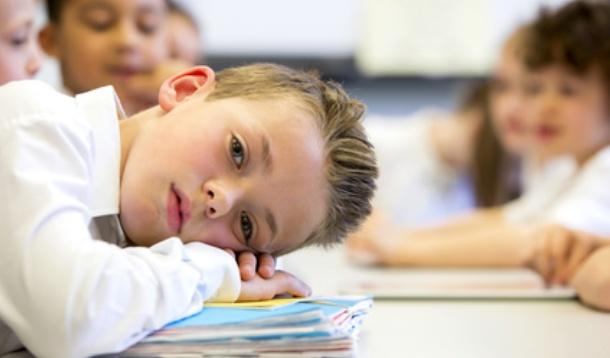
Shortly after The American Academy of Sleep Medicine released new guidelines on how much sleep your child should be getting, for the first time the 2016 ParticipACTION Report Card on Physical Activity for Children and Youth includes sleep recommendations in their 24-hour health guidelines. The correlation between sleep and physical activity is clear. The less sleep a child gets the more sedentary behavior they show. This behavior scored the lowest grade on this year’s ParticipACTION report card and sleep received its first grade ever in this report – a B.
It’s simple. When your child is tired they aren’t moving.
“Sleep deprivation is becoming a problem for Canadian children and youth, creating an insidious threat to their mental and physical health,” says Dr. Mark Tremblay, Chief Scientific Officer, ParticipACTION Report Card and Director of the Children’s Hospital of Eastern Ontario Research Institute’s Healthy Active Living and Obesity Research Group (CHEO-HALO). “It’s time to take a whole day approach – many kids are too tired to get enough physical activity during the day, and not active enough to be tired at night – it’s a vicious cycle.”
But sleep doesn’t only affect our children’s physical activity. It’s important for our children to get healthy sleep to promote better cognitive ability. Well-rested children learn more rapidly and their attention, memory and decision-making can all be diminished due to inadequate sleep. Overtired children have impaired hand-eye coordination, which can impact your child’s fine motor skills. Better sleep keeps them safe as basic skills like crawling, walking, running, and climbing can be affected by lack of sleep. Children that are tired can be more hyperactive, oppositional, and irritable and behaviour problems have been linked to sleep deprivation. Your body’s immune system has more trouble fighting off illnesses when it hasn’t had enough rest. Systemic inflammation, increased blood pressure, increased stress hormones; make our children more susceptible to infections.
So how can you promote better sleep for your children and in turn increase their physical activity?
This was a big week for sleep and what this tells me is that sleep is getting the recognition it deserves. Just like exercise and nutrition there is an importance to making sleep a priority in our children’s lives and teaching them the importance of this pillar of health. It’s up to us to teach our children to not take sleep for granted. Start talking, start sleeping, and keep moving.
I provide free child and family sleep support on my Facebook page. I invite you to join our sleep community as I work towards Good Night Sleep Site's mission of a healthier rested family unit. For more sleep tips please visit Good Night Sleep Site and visit me on Instagram and Twitter. Join our movement and #BringBackBedtime.